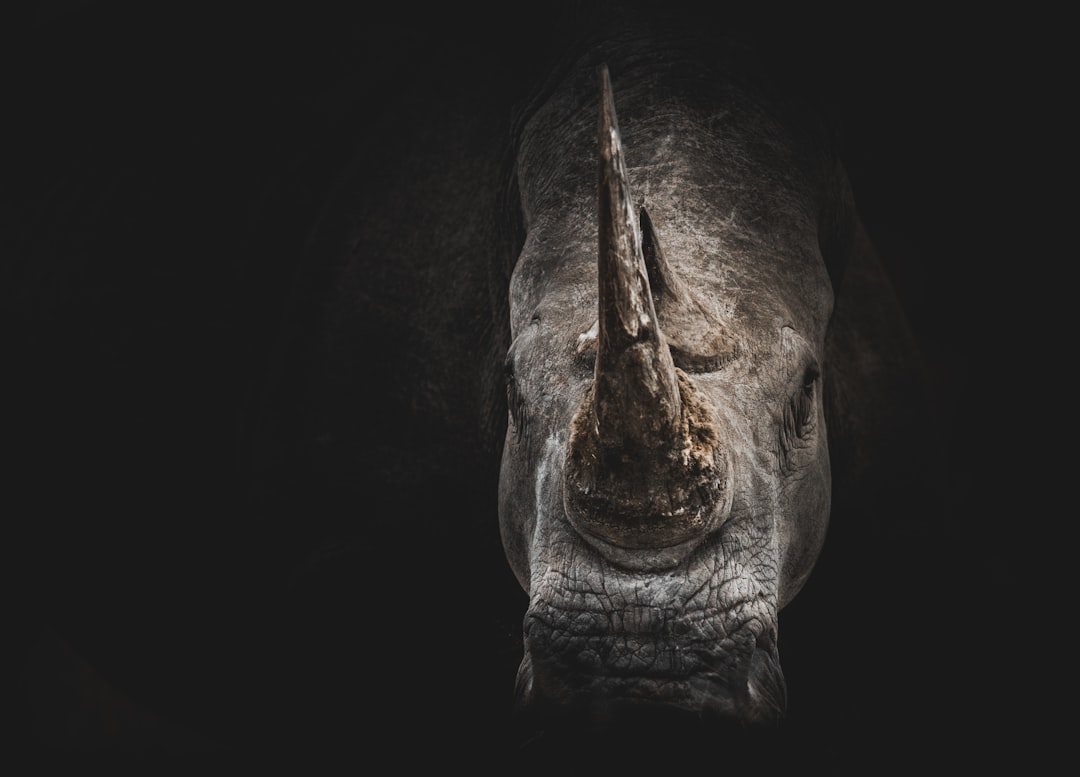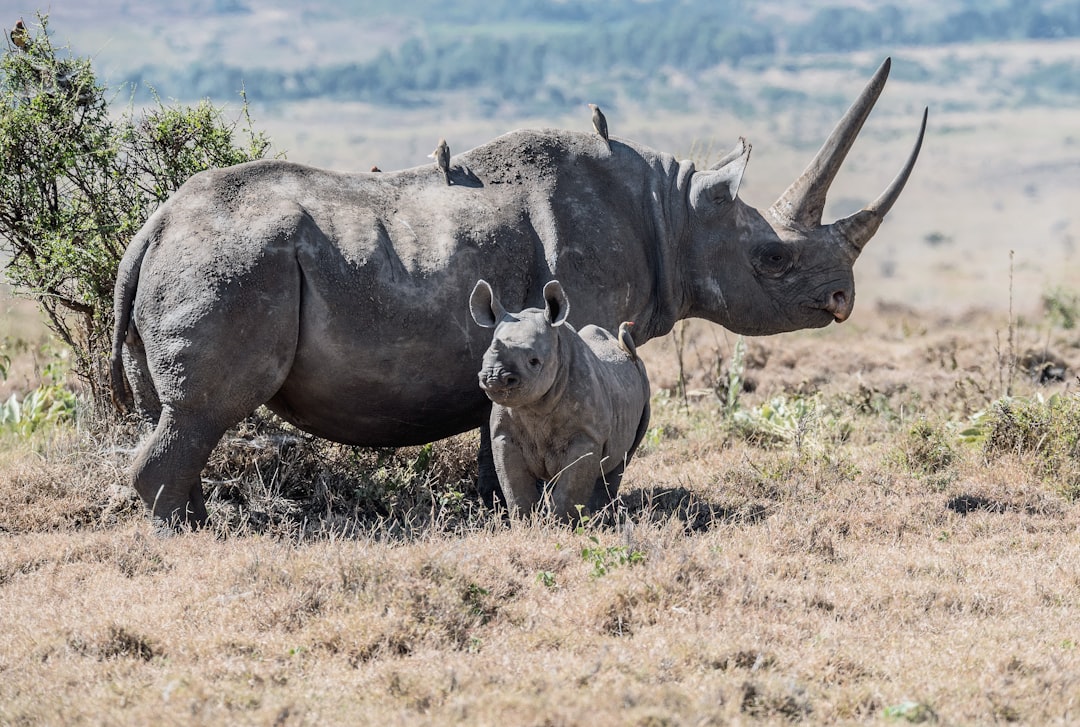I have been following the story of Hvaldimir the Beluga Whale and was inspired to write this Saga to try to influence the ending, by rallying some resources to finally get him to a place of safety. He’s lost, far from home and very far from safe. You can keep up with the latest on the OneWhale socials. There are 6 Chapters so far, and now he is in Sweden. Here is Chapter 1.
Images: One Whale
OneWhale: https://www.onewhale.org/
My Website: https://www.theonemillionpoetry.com/
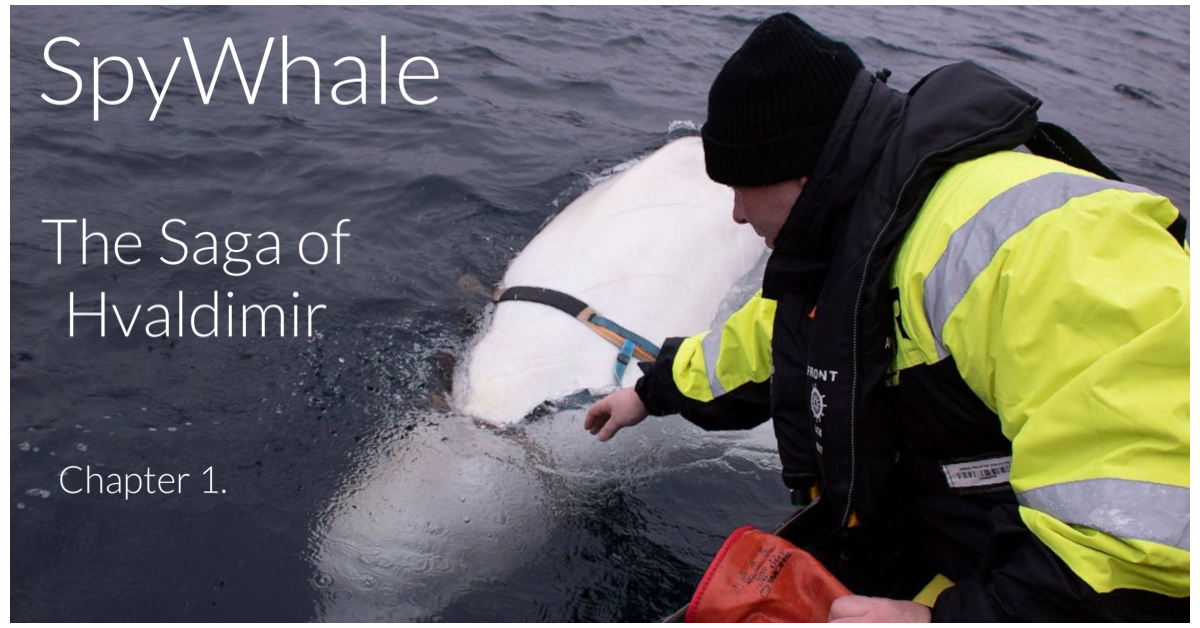
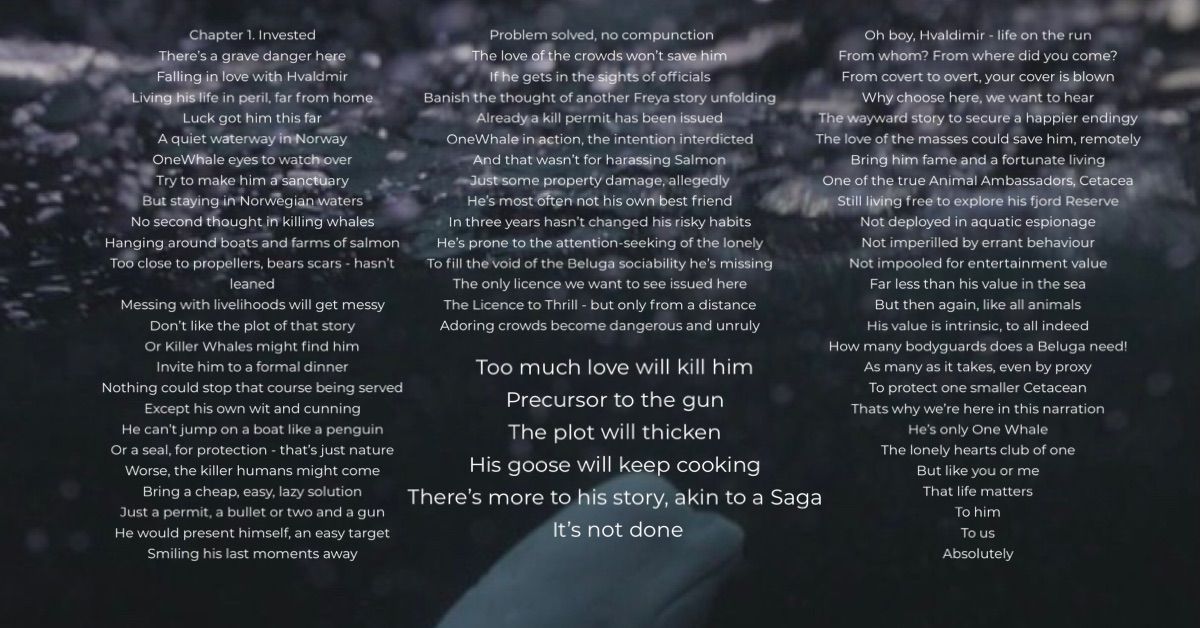
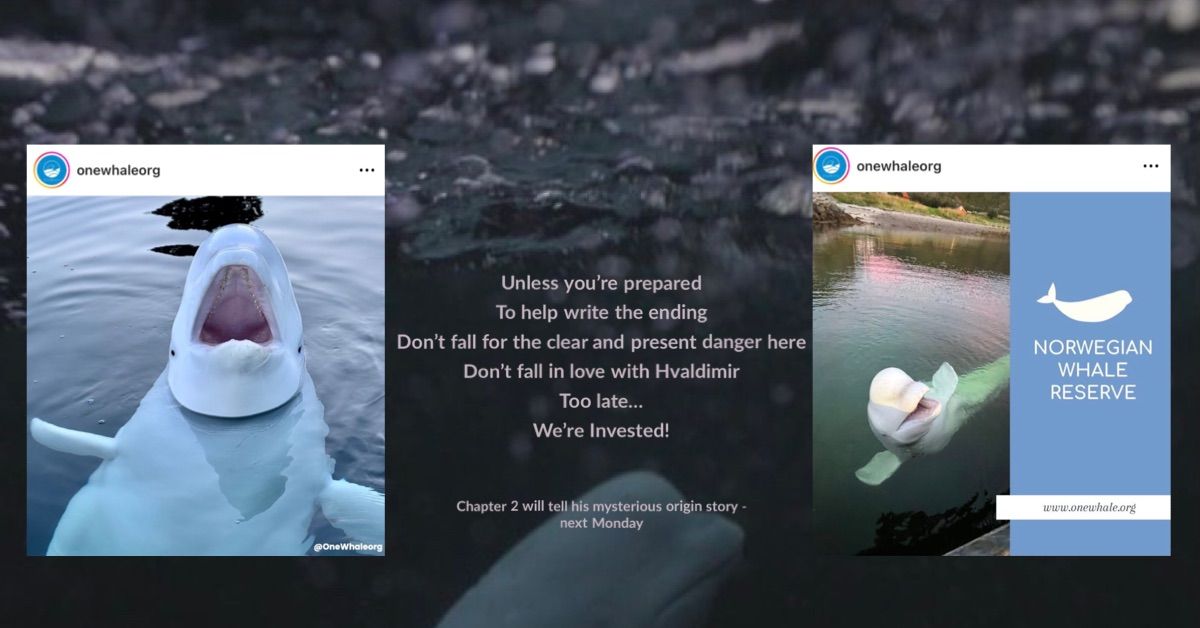
Facts on the Inhumane Practices of Hunting Contests
Hunting has been a popular activity for centuries, with many people enjoying the rush of tracking and taking down wild game. However, what many fail to realize is that this so-called "sport" has a darker side - one that involves animal cruelty, unethical practices, and inhumane treatment of wildlife. Hunting contests are just one example of this, where hunters compete to see who can kill the most animals in a set amount of time. We'll take a closer look at these competitions and delve into the facts surrounding their impact on both individual animals and entire ecosystems. Hunting contests are typically held in environments where there is a high concentration of wildlife. This means that the animals involved in these contests have had their natural habitat reduced. In this blog post, we're going to expose the dark side of hunting competitions in America - from baiting and trapping animals to using illegal methods - so buckle up and prepare to be shocked.
Many people don't realize is that the so-called "sport" has a dark side – one that involves animal cruelty
Many people view hunting as a traditional pastime that has been around for centuries. However, what many fail to realize is that the activities associated with this so-called "sport" can be incredibly cruel and inhumane. Hunting contests are one of the most egregious examples of this.
During these competitions, hunters compete to see who can kill the most animals within a set period of time. The focus is not on sustainable or responsible hunting practices but rather on winning at all costs. This often leads to unethical behavior such as cheating and taking shortcuts.
Moreover, hunting contests result in an astonishing number of animal deaths - far more than necessary for food or population control purposes. As a result, entire species have been pushed closer to extinction due to overhunting.
The suffering caused by these events cannot be overstated either. Many animals experience prolonged periods of pain before finally succumbing to their injuries - hardly a fair fight for any living creature.
It's important that we recognize the dark side of hunting and take action against practices like hunting contests that cause immense harm to wildlife populations and ecosystems alike.
Which States have the most hunting contests
Hunting contests are a widespread practice in many states across the US. According to reports, hunting competitions take place in more than 40 states, with some of them hosting multiple events each year. Among these states, Texas tops the list as having the most significant number of hunting contests.
In recent years, other states have also seen an increase in the number of hunting contests held within their borders. Arizona and New Mexico have become popular destinations for predator killing competitions, while Montana and Wyoming host several elk-calling tournaments.
However, it is worth noting that not all states permit hunting contests. California became the first state to ban wildlife-killing contests in 2014 when it outlawed coyote-killing competitions.
Despite this progress towards ending unethical hunting practices, there are still numerous challenges involved in bringing an end to such events altogether. It's essential that we continue raising awareness about this issue and advocating for stricter regulations surrounding wildlife management practices across all American states.
Texas does alot of disturbing unethical things involving wildlife and are very good as misleading the public
https://wildlifepartners.com/about-us/
"The above is a scam in my personal opinion. I had an interesting conversation with Brian Gilroy. I believe the organization has creatively fooled people that what they do is for conservation when I believe it is 100% about money. I also believe alot of their revenue comes from enclosed hunting on their ranch." Cami Ciotta
What organizations are behind hunting contests
Hunting contests are often organized by local hunting clubs, but there are also national organizations that support and promote these inhumane events. One such organization is Safari Club International (SCI), which hosts an annual convention where hunting enthusiasts can bid on hunts for rare and endangered animals.
One of the most hated by Activists is Jens Ulrich Hoch Hunter and Communications officer for Nordic Safari Club.
The National Rifle Association (NRA) is another powerful organization that supports hunting contests. They argue that these competitions promote responsible gun ownership and wildlife conservation, but the reality is far from it - many of the species targeted in these contests are not even considered game animals. The winners not only can win money, trophy hunting Safari trips, but also guns!
Other smaller organizations also exist to promote hunting contests, often with misleading names like "Wildlife Conservation Society." These groups claim to be working towards conservation efforts while simultaneously supporting activities that harm wildlife populations.
It's clear that the organizations behind hunting contests prioritize profit over ethics or environmental protection. It's up to individuals to educate themselves on the true motives of these groups and take action against their harmful practices.
Why are there not stricter rules and regulations for hunting contests
Despite the evident inhumane practices of hunting contests, it remains legal throughout many states in the US. However, one may wonder why there aren't stricter rules and regulations for this so-called "sport." The answer to that is not simple.
Firstly, hunting has always been a part of American culture. It has existed for centuries as a means of gathering food or protecting livestock from predators. Due to its cultural significance, it can be challenging to convince lawmakers and hunters themselves to change their ways.
Secondly, hunting contests are often organized by powerful organizations such as the Safari Club International (SCI) or the National Rifle Association (NRA). These groups have significant lobbying power and influence over politicians who make laws that govern hunting activities. Plus many of our lawmakers are bought by the NRA and they now own them. The most powerful organization and most harmful organization in the U.S. is the NRA. Until someone, or some group has enough resources/money the NRA will always win and will continue to run the U.S. The way to win and to take their power away is to get enough citizens to go against them. It is all in the numbers.
Despite efforts made by animal welfare activists and environmentalists to push stricter regulations on these events, they still face opposition from those who view them as an infringement on their rights. Additionally, law enforcement agencies tasked with enforcing existing regulations may lack resources or funding necessary for proper implementation.
As a result of these factors combined with other underlying issues like politics and economics; our wildlife continues suffering at the hands of unethical slaughter during hunting competitions.
Why are hunting contests legal
The legality of hunting contests is a perplexing issue, especially given the inhumane and unethical practices associated with such events. It's important to understand that hunting is regulated by state laws, meaning jurisdictions play a significant role in determining whether or not hunting competitions are legal.
One reason why these contests may be considered lawful is because they generate revenue for both private businesses and state governments. Hunting activities bring money into rural areas through tourism, lodging, food services, and equipment sales. Additionally, states often receive license fees from hunters which help finance conservation efforts.
Another argument used to support the legality of these contests centers around individual rights. Proponents argue that participating in hunting contests falls under their right to bear arms and pursue leisure activities as guaranteed by the Constitution.
Unfortunately, it seems that concerns about animal welfare have been overshadowed by financial gain and personal freedoms when it comes to regulating hunting competitions. The fact remains that these events cause immense suffering for wildlife populations and can disrupt entire ecosystems - all in the name of "sport".
How Legislation is Failing to Protect Animals from Hunting Contests
Despite efforts by animal rights activists and the public, legislation is failing to protect animals from hunting contests. Hunting competitions are legal in many states, which means that organizers can hold them without fear of criminal prosecution.
In most cases, there are no laws regulating these events. Even when regulations exist, they may be weak or poorly enforced. This lack of oversight allows hunters to engage in unethical behavior such as using illegal baiting techniques or shooting more animals than allowed.
Furthermore, some organizations behind hunting contests have powerful lobbyists who influence state legislators and prevent stricter regulations from being implemented. These lobbyists argue that hunting contributes to conservation efforts and brings economic benefits to rural areas which is a huge lie and people are believing such lies. Please step up and do your part by educating others or simply share this article.
However, the reality is that hunting contests often lead to the unnecessary slaughter of wildlife and cause suffering for individual animals. Species can also become endangered due to excessive hunting pressure on their populations. The ecosystem itself can suffer if certain species disappear or become too scarce.
It's clear that current legislation is not doing enough to protect animals from inhumane practices associated with hunting contests. More needs to be done at both the state and federal levels if we want a future where wild animals are treated with respect and dignity rather than as mere targets for cruelty and sport.
What You Can Do To Help End hunting competitions
It's time to take a stand against the inhumane practices of hunting contests and protect our wildlife from suffering, torture, and extinction. As individuals, we can make a difference by raising awareness about these unethical competitions and advocating for stricter regulations.
One of the most effective ways to end hunting contests is to support organizations that are actively working towards this goal. Consider donating your time or money to groups like the Humane Society of the United States or Project Coyote is a favorite of MojoStreaming. https://projectcoyote.org/
Also, support MojoStreaming an online wildlife channel that are advocates for our wildlife. Join us for free (for a limited time) to watch or even participate in live debates, interviews, and more. Join other like-minded, compassionate people who have a love for nature and wildlife! It is a great community to be a part of: Learn more at
https://www.mojostreaming.com/
Sign up: https://www.mojostreaming.com/signup
Additionally, you can reach out to your local representatives and urge them to enact laws that ban hunting contests altogether. Your voice can make all the difference in protecting our ecosystem from needless cruelty and slaughter.
I URGE EACH OF YOUR READING THIS TO WATCH THIS 2 MIN TRAILER!
Share this video: https://www.mojostreaming.com/video/837/wildlife-killing-contest
If you have time watch this informative but disturbing short film:
https://www.youtube.com/watch?v=mV0UZsaMjMM
Let us remember that animals are sentient beings deserving of respect, compassion, and protection. By taking action today, we can create a better future where wildlife is cherished rather than exploited for human entertainment.
.png)
